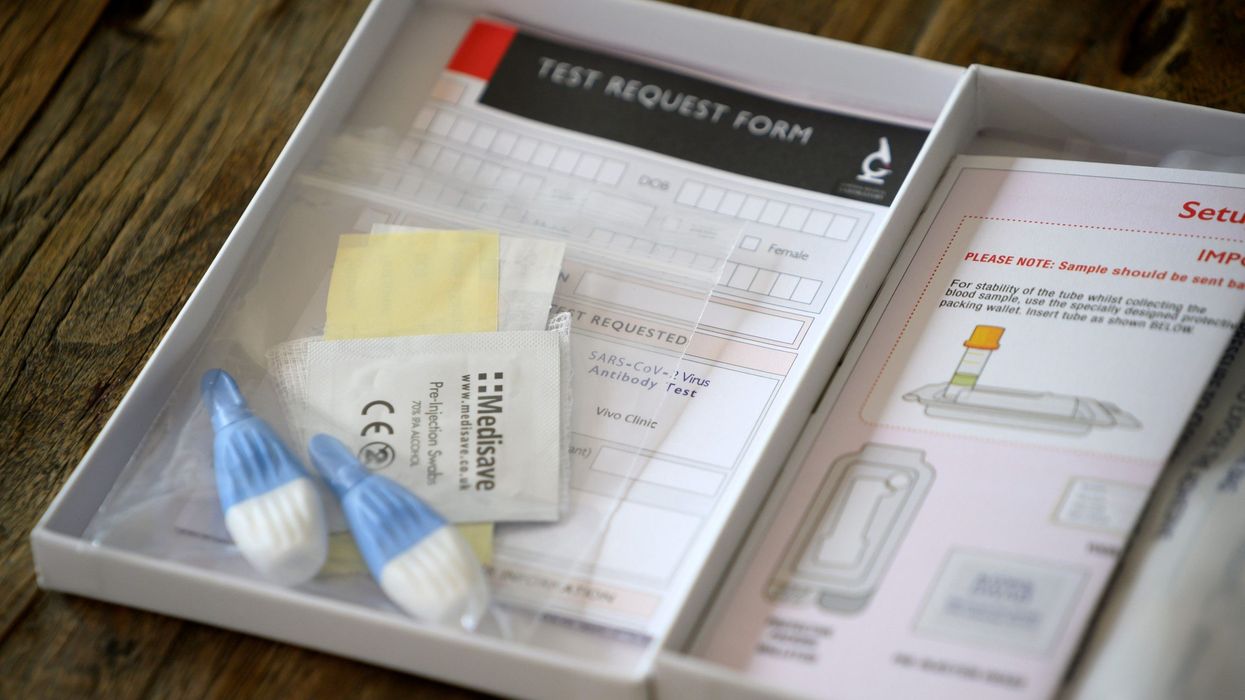The UK government on Sunday (22) announced the rollout of a new nationwide antibody surveillance programme, which will make free home antibody tests available for up to 8,000 COVID-positive people a day.
The UK Health Security Agency will offer these finger-prick tests to help improve the understanding of immunity against COVID-19 from vaccination and infection.
Under the scheme, from Tuesday, anyone aged over 18 will be able to opt in to take part when booking a PCR COVID-19 test through NHS Test and Trace system.
“Our new national antibody testing will be quick and easy to take part in, and by doing so you’ll be helping strengthen our understanding of COVID-19 as we cautiously return to a more normal life,” said UK health secretary Sajid Javid.
“I’m proud to see all parts of the UK uniting around this new initiative and working together to arm ourselves with even more valuable insights into how COVID-19 vaccines are protecting people up and down the UK,” he said.
The UK Health Security Agency said it will work alongside NHS Test and Trace testing services in England, Scotland, Wales and Northern Ireland to monitor levels of antibodies in positive cases across the UK.
The data collected will help estimate the proportion of those who got COVID-19 despite developing antibodies as a result of having a vaccine or previously catching coronavirus.
The initiative could also provide insight into any groups of people who do not develop an immune response.
The UK Health Security Agency said it will use the data to inform its ongoing approach to COVID-19 and provide further insight into the effectiveness of the vaccines against different variants.
“We are rolling out antibody testing across the UK to gain vital data into the impact of our vaccination programme and on immune responses to different variants of COVID-19,” said Dr Jenny Harries, chief executive of the UK National Health Security Agency.
“This innovative programme is only possible thanks to the thousands of people who continue to help with studies on vaccine and treatment effectiveness each week.
The best way to protect yourself and those around you is by getting vaccinated. I encourage anyone who has not yet come forward to book their first and second jabs,” she said.
All adults interested in the study will be encouraged to opt in. Anyone taking part must take their first antibody test as soon as possible after receiving a positive PCR result, before the body has had time to generate a detectable antibody response to the current infection.
The first test will determine the level of antibodies a person had before their current infection.
The second test should be taken 28 days after testing positive for COVID-19 and will measure antibodies generated in response to the infection.
By comparing the two antibody test results, the UK Health Security Agency says it will be able to see how well vaccinated individuals boost their immunity when they are infected and how this might vary with different variants.
The agency, however, warned that testing positive for antibodies does not mean someone is immune from COVID-19 and people must continue to follow the rules, get tested if they have symptoms and self-isolate if positive or are a contact of a positive case and have not received both vaccine doses, to prevent the virus from spreading.
“Our testing armoury is stronger than ever now we are rolling out antibody testing to thousands of people in England, Scotland, Wales and Northern Ireland alongside the vast testing capacity we have built including our NHS Test and Trace system,” said Dr Susan Hopkins, Public Health England’s (PHE) COVID-19 strategic response director.
“Antibody testing surveillance shows how health teams across the UK are dedicated to working together to find innovative ways to understand the effectiveness of COVID-19 vaccines and target future treatments for COVID-19,” she said.
Antibodies are part of the body’s immune response to help fight off infection and are generated either after being infected or following vaccination.
Antibody testing looks for evidence of this immune response, whereas PCR and antigen testing tells someone if they have the virus at the time of test.
Antibody testing is aimed at contributing to the understanding of the protection provided by vaccines, as official figures in the UK show that 87 per cent of people aged 16 and over have now received their first COVID-19 vaccine dose and 76 per cent have had their second dose.












